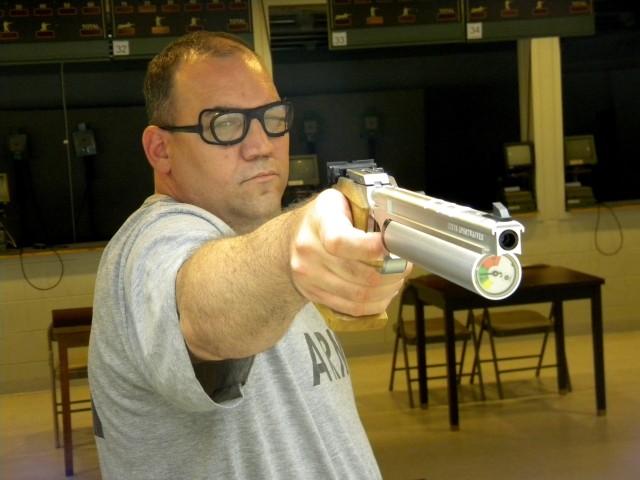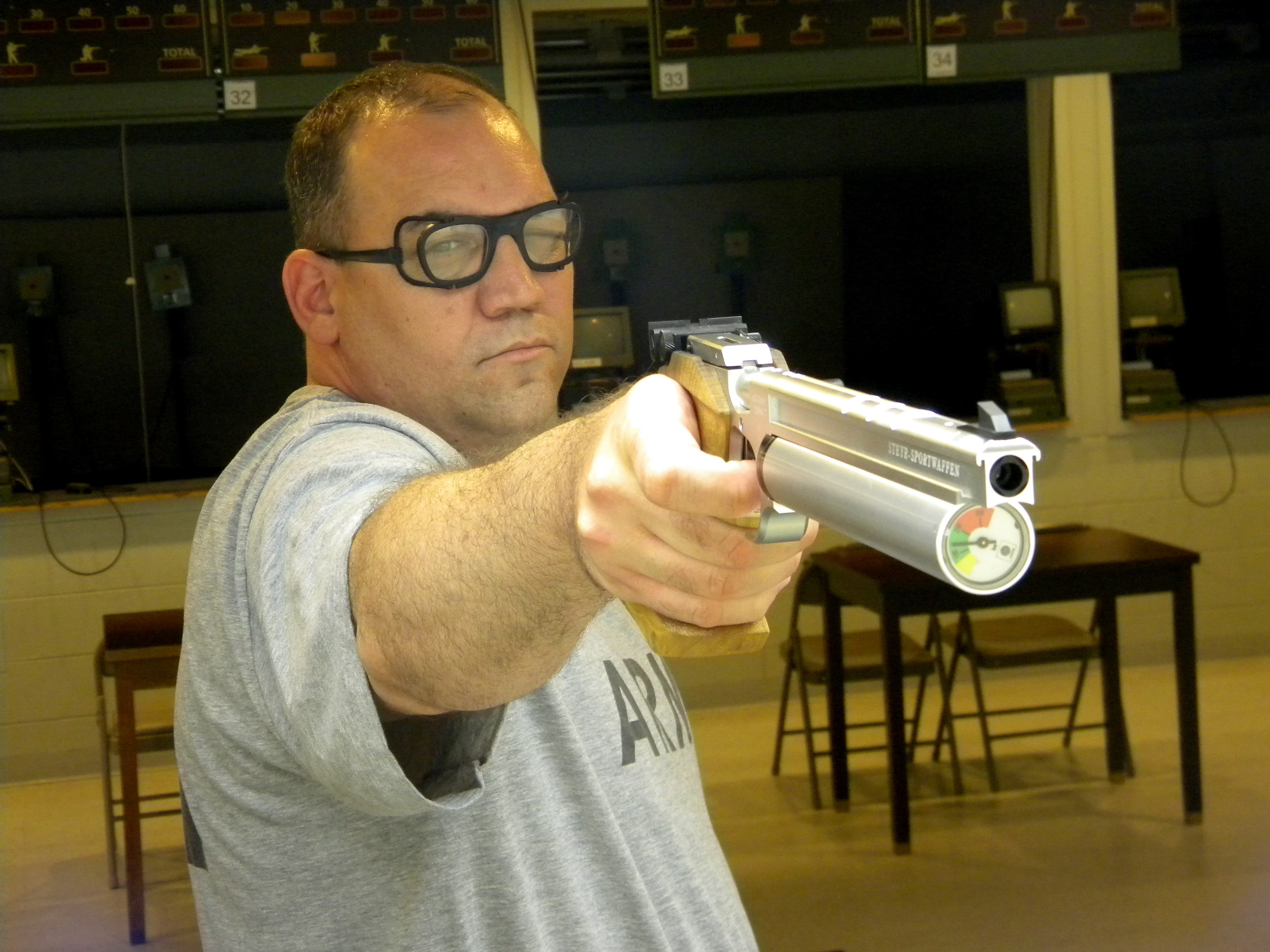FORT JACKSON, SC -- More than 200 wounded service members and veterans traveled to the U.S. Olympic Complex in Colorado Springs, Colo., May 10-14 to compete in the inaugural Warrior Games.
Among that number was one of Fort Jackson's own, who said participating in the games gave him the breakthrough for which he had been waiting since 2003.
Sgt. David Marklein, a soon-to-be med- ically retired military policeman and member of Fort Jackson's Warrior Transition Unit, enlisted in the Army as an infantryman in 2002.
A year later, he was already serving his first tour in Iraq with the 1st Brigade, 1st Armored Division.
During the deployment, he became the personal driver for the brigade's command sergeant major.
While on a mission that Christmas Eve, their Humvee struck an improvised explosive device. His sergeant major was killed, and though Marklein showed no signs of external injuries, he suffered damage to his head, neck, back and eardrums.
He said he has had a headache ever since.
Though he was in pain, Marklein told no one in fear that he would be pulled out of the fight.
Marklein finished his tour, and even returned to Iraq a second time, all the while, keeping his injuries, both psychological and physical, a secret.
Marklein reclassified his military occupational specialty from infantryman to military policemen and was assigned to the 17th Military Police Detachment after he relocated to Fort Jackson in 2007.
Still dealing with symptoms of post-traumatic stress disorder and traumatic brain injury, yet undiagnosed, Marklein continued to cope on his own, until suffering the loss of his brother to suicide, and an altercation with his former first sergeant, forced him to get help.
When his PTSD and TBI were finally diagnosed, he thought he was losing his identity.
"I had gotten to that point where being a Soldier wasn't just a job," Marklein said. "It was who I was. The idea of never getting to lead Soldiers again was like a loss, and I had already lost enough."
Marklein said that like many wounded Soldiers who first come to a WTU, he focused on his disabilities and forgot the things he was actually capable of doing.
"It took an emotional toll on me. It discouraged me," Marklein said. "It made it difficult to find motivation."
Until one day, his first sergeant presented him with the antidote for that, he said - an invitation to competitive sports.
The Warrior Games offers Soldiers with physical and psychological wounds an opportunity to build up their confidence and a chance to connect with comrades-in-arms.
Although he initially signed up to compete in the air rifle event, just six weeks prior to the games, Marklein found out he would be competing in the air pistol shooting and sitting volleyball competitions.
Soon after, he traveled to Fort Benning, Ga., to learn to become an expert at firing an air pistol.
Marklein, who said he had been shooting rifles since boyhood, said it was "amazingly difficult" for him to learn how to fire an Olympic-style air pistol using only one hand, no support allowed, at targets 10 meters away and not much bigger than the pellets coming out of it.
"It's not just pulling the trigger," Marklein said. "It's the precision of it. To command it, you have to calm down, you have to focus. It requires a lot concentration. There's a lot of technique involved."
When Marklein arrived for training, pistol coach Ray Arredondo noticed him right away.
"He stood out in the group of pistol shooters because he was taller than most," Arredondo said. "But I found out pretty quickly that his height was the least of his attributes as a pistol shooting athlete."
Marklein practiced every day and by the time he traveled to Colorado to compete, he had become one of the top shooters in his group.
"I was ready," Marklein said. "And I was highly confident. I was feeling great about shooting."
But during the competition something unexpected happened. For someone suffering with PTSD, as Marklein is, one might expect that the sounds of weapons firing might trigger a symptom.
But it wasn't the noise that did it for him.
While he was shooting, someone touched Marklein from behind - something he said he wasn't expecting.
"I felt a jolt of adrenaline surge through my body," Marklein said. "I became angry. My hand was shaking. But something miraculous also happened.
"For the very first time that I've been dealing with PTSD, I was able to keep it under control," he said. "Usually when I get that way, I normally stop what I'm doing or separate myself from the situation - go be alone to calm down.
"And I was tempted," he continued. "I really just wanted to walk away. I wanted to get out of there. But I stayed, and I continued the task to completion. (The PTSD) didn't completely control me this time.
Marklein subconsciously had used acquired shooting techniques - slowing down his breathing, calming his body and focusing - to overcome the power of his PTSD.
"In therapy we talk about stuff, but it's just talk," he said. "You think, 'How do you apply this in the real world' How do you apply that when someone cuts you off in traffic'' But when you experience (coping mechanisms actually) working, it's pretty amazing."
It was a feat he had not been able to accomplish since that first IED explosion in 2003.
He said he has yet to master to it, but he is excited with the prospect that sports are helping him get his life back - not the same life as before, but maybe even a better one.
"I'm feeling lucky I've had the chance to go (to the games)," Marklein said. "The experience has opened my eyes up to a whole new world. It's no longer all about overcoming disabilities. It's about seeking out abilities - finding out what I am able to do."


Social Sharing